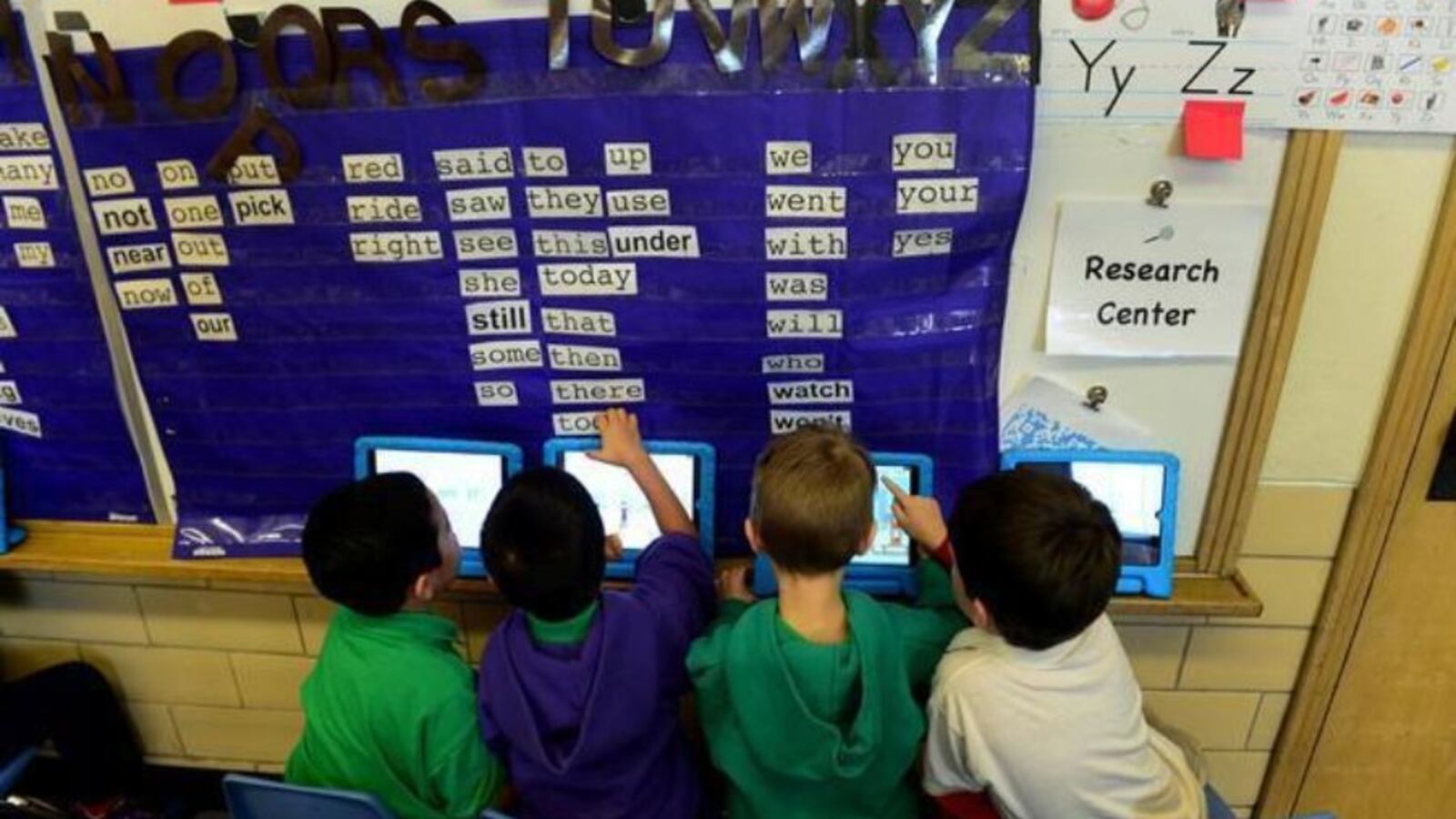In its bid to cut $20 million from next year’s budget, Jeffco Public Schools is looking to eliminate two programs that have posted promising results so far.
One is a three-year-old program to help struggling readers at 20 schools that have large numbers of students that need help. The other, modeled on work gaining momentum nationwide, is a new program focused on helping students develop social and emotional skills.
The proposal to cut 20 literacy interventionists and 31 social and emotional learning specialists would save $4.21 million. At what is expected to be an emotional and contentious meeting Thursday, the board could vote to approve the reductions as part of its overall package of cuts or it could decide to pull these items out and continue funding them.
District officials say both programs have made an impact but are among a raft of cuts necessary for the school board to make good on its promise to increase teacher pay after voters rejected two tax measures in November.
“It isn’t fun, but hopefully we can make some hard choices so we don’t have to do this in the future,” said district spokeswoman Diana Wilson.
Wilson said the literacy program has helped struggling readers — mostly second- and third-graders — make bigger gains in reading than similar students who didn’t get the extra help. Still, she said it costs about $4,000 per child.
“We know that’s it’s working,” she said. “We can see the impact, but it’s very expensive.”
The district’s social and emotional learning initiative for middle-schoolers has only been in place for about six months. It includes restorative justice programs, mindfulness training, anger-management classes and skill-building seminars. Administrators leading the program say it’s based on a growing body of evidence showing that efforts to improve students’ mental health pay academic and health dividends.
Student Services Director Jon Widmier said the extra social and emotional staff have helped the district get to a point where it can help kids proactively, instead of reacting when there’s a crisis.
“To lose (the specialists) is to really lose the foundation that could have some long-term effects on suicide risk … or even dropout rates,” he said.
Parent Shawna Fritzler, whose daughter is in seventh-grade at Manning School in Golden, said middle school is a time when kids need extra support because of changing bodies, friendships and school expectations.
“With the hormone overload, these kids are losing their minds,” she said. “This has been an amazing addition. I personally would like to see that program grow rather than be cut.”
Ezra Aldern, who serves as the social emotional learning specialist at an alternative middle school in Jeffco called Connections Learning Center, said suspensions declined 50 percent from the first semester of 2015-16 to the first semester of 2016-17. He credits the dip to two programs he’s launched.
One is a restorative justice program that allows students to work out conflicts in an adult-facilitated meeting and the other is a Saturday morning class he runs for students who’ve gotten in trouble. Participants make breakfast together, do a fitness activity and take part in a lesson to improve communication, conflict resolution or some other skill.
Aldern, a licensed social worker, said it’s important to remember that students aren’t hard-wired to have good social and emotional skills, especially in a technology-driven age when many students spend hours online. He said it would take at least three years to have a solid set of data to prove the program’s worth.
He’s not alone.
Melissa Schlinger, vice president of practice and programs for the Chicago-based Collaborative for Academic, Social and Emotional Learning, said it’s unfortunate when funding gets cut before initiatives are given enough time to work.
“People aren’t very patient,” she said.
She said she’s seen social and emotional learning programs survive in other large districts that have slashed spending, including the 380,000-student Chicago Public Schools.
“It has to be something that’s identified by the superintendent, the board and community in order for it to withstand budget cuts,” said Schlinger, whose organization promotes social and emotional learning through research and advocacy.
Schlinger cited plenty of good work happening in Colorado around social and emotional learning. She mentioned Denver Public Schools and the Boulder Valley School District as two districts that have prioritized such efforts, and the Denver-based Random Acts of Kindness Foundation and the Boulder-based PassageWorks as two nonprofits that have supported such work.
Unlike in Jeffco, Denver voters approved new school funding in November, including $15 million that will be used partly to pay for new school social workers and psychologists.
Jeffco administrators say middle school principals will have the option to keep their social emotional learning specialists using money from their school budgets instead of central district money, but it would require them to cut something else. Each specialist costs about $60,000, though it varies depending on the type of license they have.
As for the school board reconsidering the proposed cuts, Widmier said the board has “impossible decisions” to make.
“It’s tough to play lifeboat,” he said, “and decide which one is the most important.”

